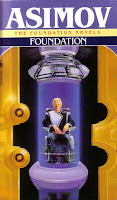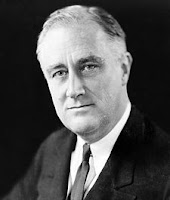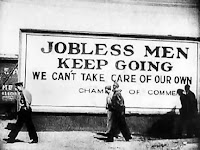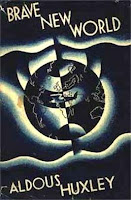
Of course, this begs the question: Is it really possible? Does our history follow a particular pattern, and can we apply this pattern to the future?
To answer this, we must first look back at our past. For most of our history, humanity consisted of small, nomadic tribes who survived by hunting and gathering plants for food. During this time, our history was very predictable. The population of each tribe was balanced by the fact that a tribe that was either too small a tribe or too large could not survive. Disease, starvation and violent death also kept our population in check. Our movements were predictable, since it was necessary to move from area to area because we could only gather a certain amount of food per hectare before it was time to move on. The types of societies we lived in did not very much—none were very large or had any kind of centralized government. Technology remained stagnant, and apart from weather and climate there were no significant random factors.

However, around a few thousand years B.C. there was a huge shift in the course of human history. According to Jared Diamond, author of the Pulitzer Prize winning book Guns, Germs, and Steel, the reason was agriculture. Around this time agriculture began to evolve, and everything changed. According to the book (of which I am a huge fan), agriculture made societies sedentary and allowed for specialization because of the increased amount of food produced. This led to larger populations, more complex societies, government, and labor. Now societies had soldiers, leaders, craftsmen, and, most importantly, inventors. Society allowed for technology to increase, and technology, as we will see, became the factor that most influenced the path of history.
According to Diamond, societies with agriculture proceeded to destroy or subjugate those without it. They do this by using guns, germs, and steel, all of which stemmed from agriculture. However, though Diamond is correct in saying that technology would not have increased so rapidly (if at all) without agriculture, he ignores the random factors involved in the way that technology affects history. In Guns, Germs, and Steel Diamond supports social determinism, the belief that technology’s use is determined by culture.

However, he ignores the fact that cultures are changed by technology, and that cultures change very rapidly with respect to history. For example, though the telephone was initially rejected, once it became widely accepted, it had profound effects on our culture. Though culture determines if an invention is put to use, that invention may have the unintended effect of changing the culture drastically. Furthermore, technology does not increase at a constant rate. Believers in the concept of the technological singularity assert that technology advances in an exponential curve, but recent evidence has shown that this is not exactly the case. This is probably because technology is also influenced by economic, social, and environmental factors.
Furthermore, in modern history the economy has an enormous role in deciding the path of history. Currently, mathematics and economics have not evolved to the point where we can accurately predict the direction the economy is going to go. This is because modern economics are highly complicated, and, as economists often forget, the economy is influenced by the environment and the distribution of natural resources. Since we do not understand the impact the spread of resources has on the economy and we do not know where the natural resources of the future are located or even what they are, we have no way of predicting the economy many years from now.
Even if were could accurately predict the general pattern the economy, history is not predictable in the short term (say, decades or centuries) because the growth of technology is unpredictable. If we were to look in the long term, (long enough for the increase of technology to be roughly a parabola) we would run into other problems: Climate change affects history in the long term, and current models are not sufficient to predict the climate thousands or tens of thousands of years from now. Next, remember that “modern” history has only existed for about five thousand years—this is not enough data to use to predict the next hundred thousand years.
If you need even more evidence, chaos theory is looking better and better—and if minor occurrences can change the course of history, as the theory suggests, predicting human history using the laws of mass action is completely impossible.











